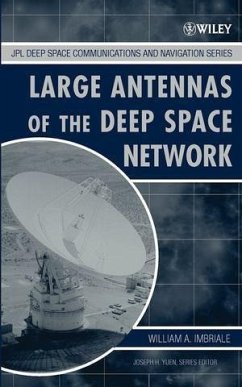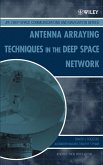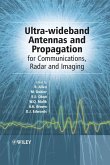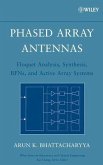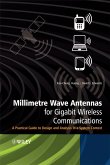An important historical look at the space program's evolving telecommunications systems Large Antennas of the Deep Space Network traces the development of the antennas of NASA's Deep Space Network (DSN) from the network's inception in 1958 to the present. It details the evolution of the large parabolic dish antennas, from the initial 26-m operation at L-band (960 MHz) through the current Ka-band (32 GHz) systems. Primarily used for telecommunications, these antennas also support radar and radio astronomy observations in the exploration of the solar system and the universe. In addition, the author also offers thorough treatment of the analytical and measurement techniques used in design and performance assessment. Large Antennas of the Deep Space Network represents a vital addition to the literature in that it includes NASA-funded research that significantly impacts on deep space telecommunications. Part of the prestigious JPL Deep Space Communications and Navigation Series, it captures fundamental principles and practices developed during decades of deep space exploration, providing information that will enable antenna professionals to replicate radio frequencies and optics designs. Designed as an introduction for students in the field as well as a reference for advanced practitioners, the text assumes a basic familiarity with engineering and mathematical concepts and technical terms. The Deep Space Communications and Navigation Series is authored by scientists and engineers with extensive experience in astronautics, communications, and related fields. It lays the foundation for innovation in the areas of deep space navigation and communications by disseminating state-of-the-art knowledge in key technologies.
Dieser Download kann aus rechtlichen Gründen nur mit Rechnungsadresse in A, B, BG, CY, CZ, D, DK, EW, E, FIN, F, GR, HR, H, IRL, I, LT, L, LR, M, NL, PL, P, R, S, SLO, SK ausgeliefert werden.

